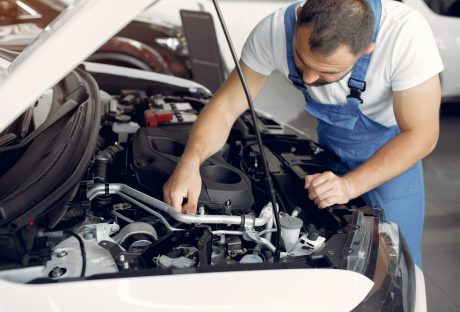According to the American Trucking Associations (ATA), U.S. freight volume has risen 4.2% in 2008, fuelled in no small part by a manufacturing industry rebound as well as a healthy economy.
ATA Chief Economist Bob Costello says that the growth rate is expected to ease to 2.3% per year from 2019 through 2024. This growth rate, however, will offer very little relief to shippers who still struggle with a driver shortage.
According to Fortune, this lack of qualified drivers many trucking companies competing for the same small pool of workers, with some companies complaining that only 1% to 2% of applicants meet the necessary requirements.
This shortage is creating a noticeable ripple effect, as companies vying for workers who meet the necessary qualifications are offering much higher pay and signing bonuses. According to the ATA, the median pay for drivers in this category is $59,000, while experienced drivers working for private fleets see as much as $86,000 a year.
Trucking companies are paying more than ever to secure capable drivers, and when you combine these expenses with rising fuel and maintenance costs it’s no wonder that so many owners experience frequent cash flow issues. It’s obvious why the trucking industry is considered to be a challenging one.
The good news for owners is freight factoring has become an increasingly popular and mainstream financial solution to accessing immediate funding.
Freight factoring is an arrangement between a factoring company and a trucking company, in which both parties benefit. A trucking company sells its unpaid invoices at a discounted rate to a factoring company in exchange for a cash advance, allowing them to meet their expenses.
The factoring company charges a nominal fee while holding a percentage of the invoice amount in reserve. The factoring company, as part of its service, collects on the invoice from the original customer, and when they do, the percentage held in reserve is remitted. Click here to learn more about the ins and outs of invoice factoring and how it can help your trucking company thrive in challenging times.
This straightforward arrangement solves an ever-present cash flow issue that many trucking companies face. By factoring invoices, owners have access to cash they need to pay their drivers and meet other costs, while no longer sinking valuable time into making collections and tracking down payments.
Without freight factoring, trucking companies are at the mercy of slow-paying customers and will wait 30 to 60 or even 90 days to receive much-needed payment for deliveries they’ve already made.
Freight factoring from a reliable company such as Accutrac Capital provides a much-needed cash flow surge to:
- Start-up operations
- High-growth companies with insufficient working capital
- Companies in transition
- Companies experiencing a tough year or experiencing a change of ownership
In a world where overhead costs — such as rising driver wages — can outpace cash on hand, factoring restores the value of overdue invoices and frees trucking company owners to concentrate on growth and customer service, rather than worrying about chasing down payments. If you run a small trucking company or a nationwide fleet, freight factoring could be the cash flow solution you’ve been looking for.
Read Also:






















